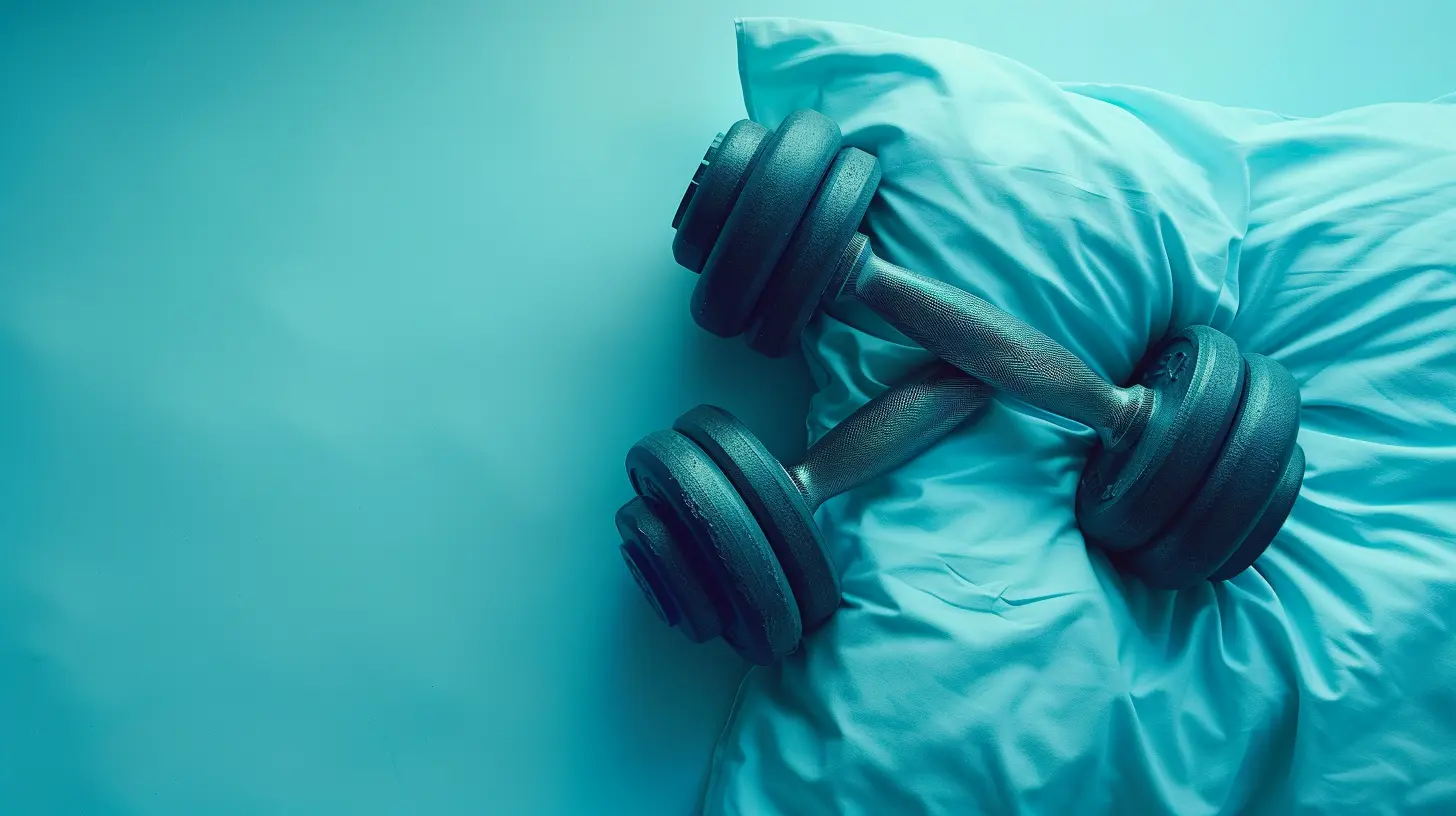15 January 2025
When it comes to fitness, we often focus on lifting heavier weights, eating the right foods, and sticking to a consistent workout routine. But what if I told you there's a hidden secret weapon for building muscle and recovering faster? Yep, I’m talking about sleep! That comfy, cozy activity we sometimes take for granted is a major player in your fitness journey. Curious about how sleep works its magic on your muscles? Let’s dive in!
Why Sleep Is Important for Muscle Growth and Recovery
Imagine sleep as your body's overnight repair shop—where muscle tears from your workout are patched up, hormones are balanced, and your energy bank is refilled. Think of it like charging your smartphone; you can’t expect your phone to run all day if it’s only charged to 50%. In the same way, shortchanging your sleep means your body never fully recharges, leaving you with lackluster workout results and slower muscle recovery. Not ideal, right?
The Science of Sleep and Muscle Growth
Here’s the nerdy part—but trust me, it’s worth understanding. Sleep directly impacts muscle growth through these three key factors:1. Hormonal Regulation: The Muscle-Building Crew
During deep sleep (specifically, slow-wave sleep), your body releases Growth Hormone (GH). This hormone is a superstar for muscle repair and growth. It’s like the construction crew working on rebuilding your muscles stronger after a tough workout. If you skimp on sleep, you’re basically kicking the crew off the job before they’re done—resulting in less muscle growth.On the flip side, poor sleep increases cortisol levels (the infamous stress hormone). High cortisol can break down muscle tissue and block muscle growth. Yikes!
2. Protein Synthesis: The Recovery Process
Sleep fuels protein synthesis—the process that repairs and rebuilds the tiny tears in your muscles caused by exercise. Without enough sleep, your body struggles to keep up with this process, leading to prolonged soreness and, ultimately, slower progress in the gym.3. Muscle Glycogen Replenishment
Muscle glycogen is your primary source of fuel during intense workouts. During sleep, your body works to replenish these glycogen stores, ensuring you have the energy to crush your next sweat session. Skipping out on sleep means showing up to your workout with an empty tank—not exactly a recipe for success.
The Different Sleep Stages and Their Role in Recovery
Not all sleep is created equal. Each sleep stage plays a unique role in helping your body recover and grow stronger.1. Non-REM Sleep
This is the phase where the magic happens. During non-REM sleep, particularly stages 3 and 4 (deep sleep), your body gets busy repairing tissues, strengthening the immune system, and releasing growth hormone. The deeper your sleep, the better your recovery.2. REM Sleep
REM (rapid eye movement) sleep is when your mind gets a recharge. While deep sleep focuses on your body, REM sleep helps you process emotions, reduce stress, and improve cognitive function. Believe it or not, mental recovery plays a vital role in staying consistent with your fitness goals.
Signs You’re Not Getting Enough Sleep
So, how do you know if sleep is sabotaging your gains? Your body will send you some pretty clear signals:- You’re constantly sore for longer than usual.
- Your energy levels are in the gutter.
- You’re struggling to lift weights you used to crush.
- You’re craving sugary, carb-heavy foods all day (hello, poor willpower!).
- Your mood feels off or you’re easily irritated.
Sound familiar? If yes, then it’s time to prioritize your zzz’s.
Sleep Requirements for Optimal Muscle Growth
So, how much sleep do you actually need? For most adults, 7-9 hours of quality sleep per night is the sweet spot. Athletes or individuals with intense training regimens may even need closer to 9-10 hours. Think about it: the harder you train, the more repair work your body needs. That’s why elite athletes like LeBron James and Roger Federer reportedly sleep up to 12 hours a day!But here’s the catch—it’s not just the quantity of sleep that matters. Quality is key. Tossing and turning for 8 hours doesn’t count. You want deep, uninterrupted, blissful sleep for maximum recovery.
Tips for Better Sleep (and Better Gains)
Alright, let’s get practical. If you’re ready to unlock your full muscle-building potential with better sleep, try these tips:1. Stick to a Sleep Schedule
Consistency is king. Going to bed and waking up at the same time every day helps regulate your internal clock, making it easier to fall asleep and wake up refreshed.2. Create a Sleep Sanctuary
Your bedroom should feel like a cave—dark, cool, and quiet. Eliminate distractions by using blackout curtains, investing in a white noise machine, or even rocking some earplugs if needed.3. Ditch the Screens Before Bed
Scrolling through Instagram or binge-watching Netflix might seem relaxing, but the blue light from screens messes with your melatonin production (the hormone that helps you sleep). Aim to power down devices at least 30-60 minutes before hitting the sack.4. Watch Your Pre-Bed Habits
Think twice before downing that late-night coffee or energy drink. Caffeine and alcohol can disrupt your sleep quality. Instead, consider sipping on a calming herbal tea like chamomile.5. Wind Down with a Routine
Incorporate relaxing activities like reading, journaling, or stretching before bedtime to help signal to your body that it’s time to unwind.Sleep vs. All-Nighters: The Workout Tradeoff
We’ve all been there—choosing between getting enough sleep or waking up early to squeeze in a workout. While it might be tempting to sacrifice sleep for more gym time, it’s not always the best choice. Remember, without proper rest, your workout performance and recovery take a hit. In fact, one bad night of sleep can reduce your strength and endurance the next day. If you’re regularly cutting sleep short, you’re essentially working out in "low power mode."So, if you’re debating between an extra hour of sleep or an early-morning workout, ask yourself: will this workout be effective if I’m running on fumes? Most of the time, the answer is no.
Can You Make Up for Lost Sleep?
What happens if you hit a rough patch and can’t get enough sleep? Can you “pay back” your sleep debt? To some extent, yes. Catching up on quality sleep over the weekend (or on rest days) can help restore some of the damage. But don’t make this a habit—consistent, high-quality sleep is always the better route for long-term muscle growth and recovery.The Takeaway: Sleep Is the Ultimate Recovery Tool
At the end of the day, sleep isn’t just a luxury—it’s a necessity, especially if you’re serious about building muscle and improving performance. It’s like the unsung hero of fitness, working behind the scenes to repair, rebuild, and energize your body while you dream away. So, the next time you’re tempted to pull an all-nighter or cut your snooze short, remember: every hour of lost sleep is an hour your muscles don’t get to rebuild.Want bigger muscles? Take your sleep seriously. After all, gains aren’t just made in the gym—they’re made in your bed too. Sweet dreams!









Gianna Reed
Sleep: the secret sauce for swole muscles—who knew dreams could pump iron?
March 24, 2025 at 6:03 PM